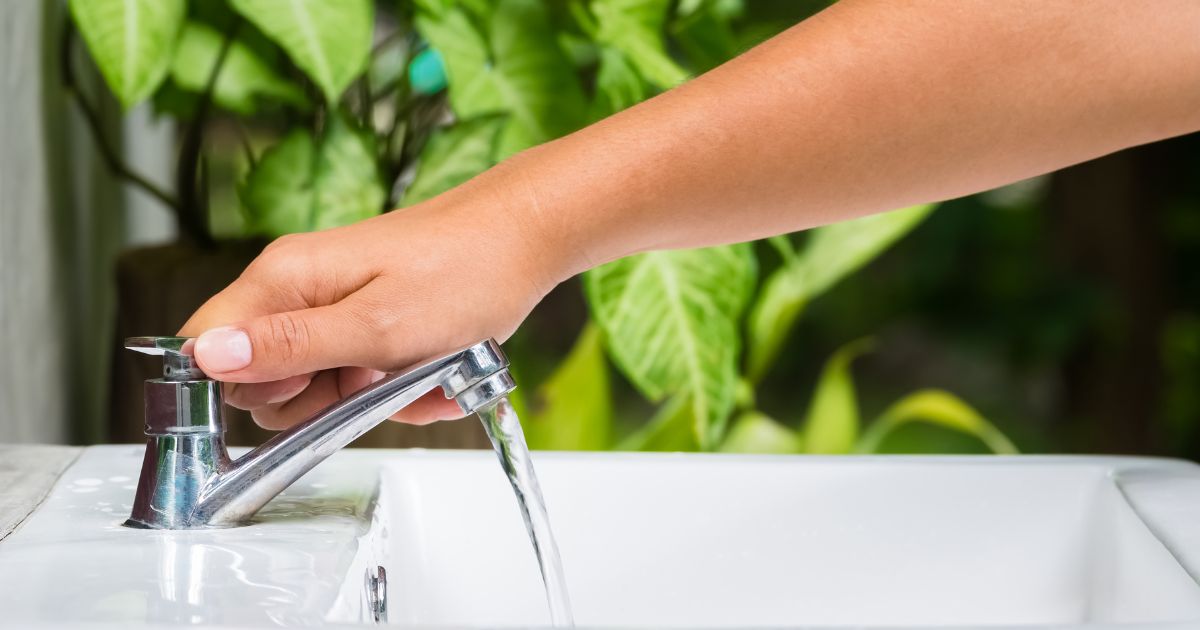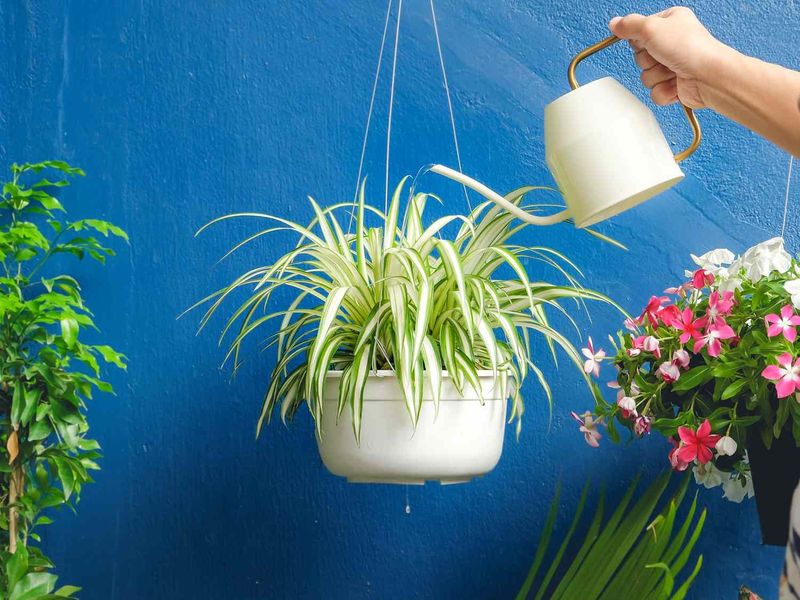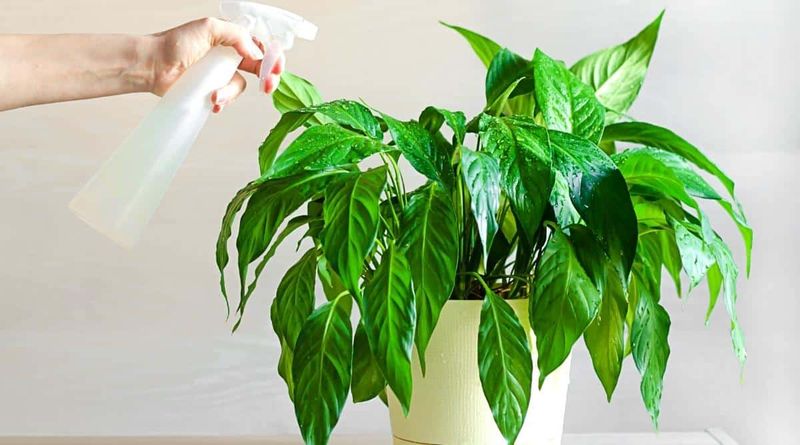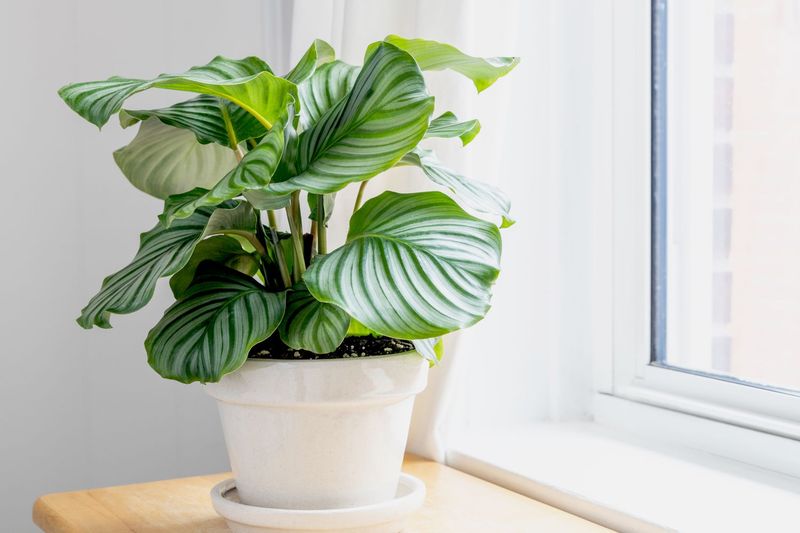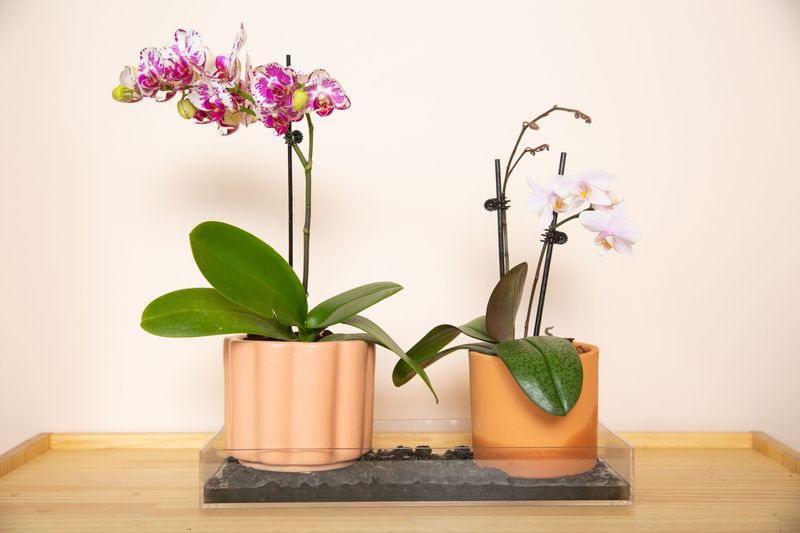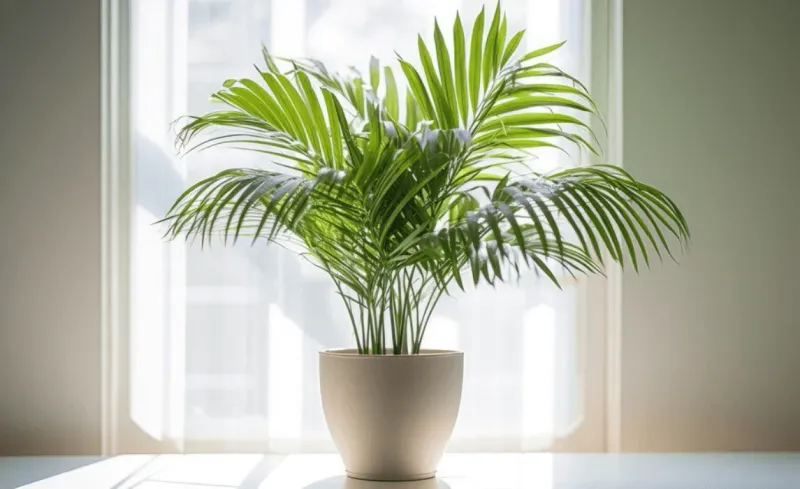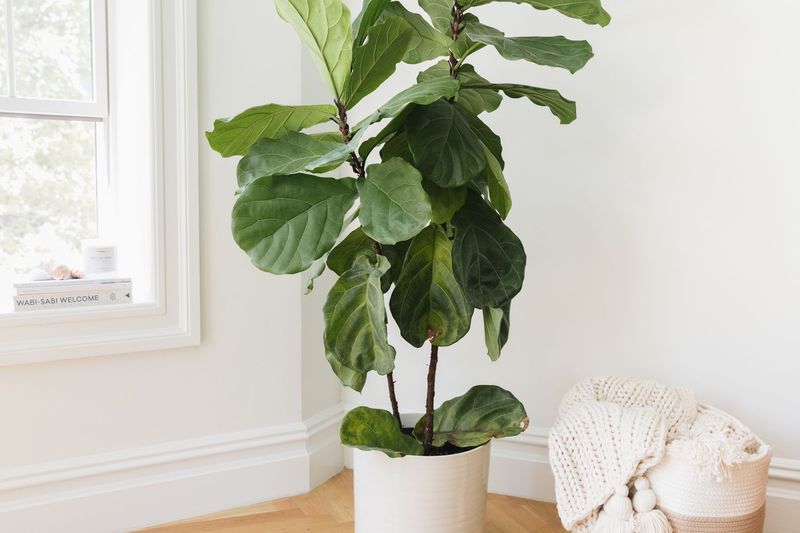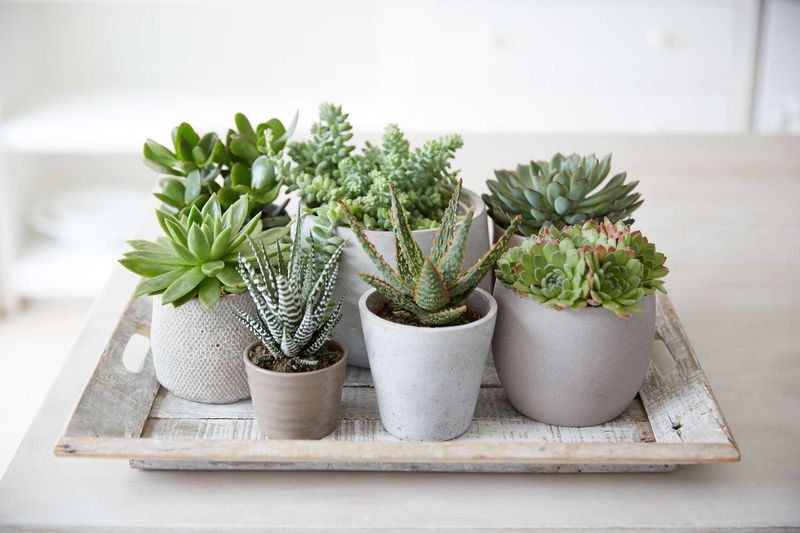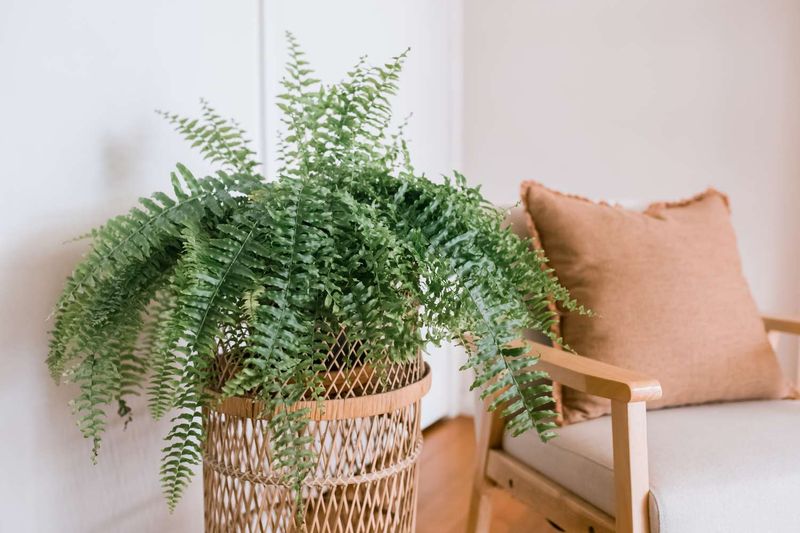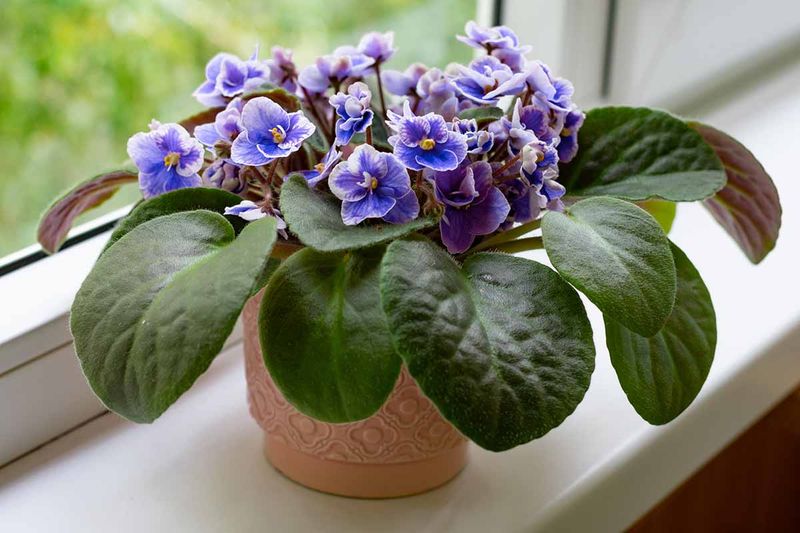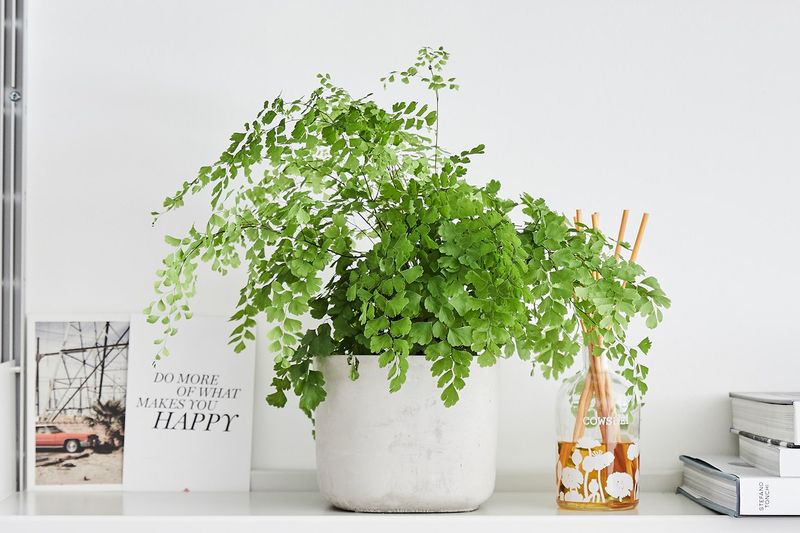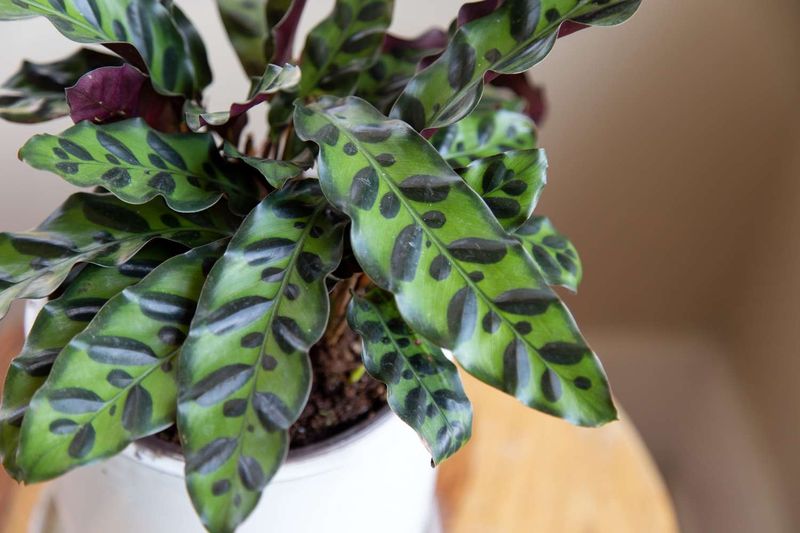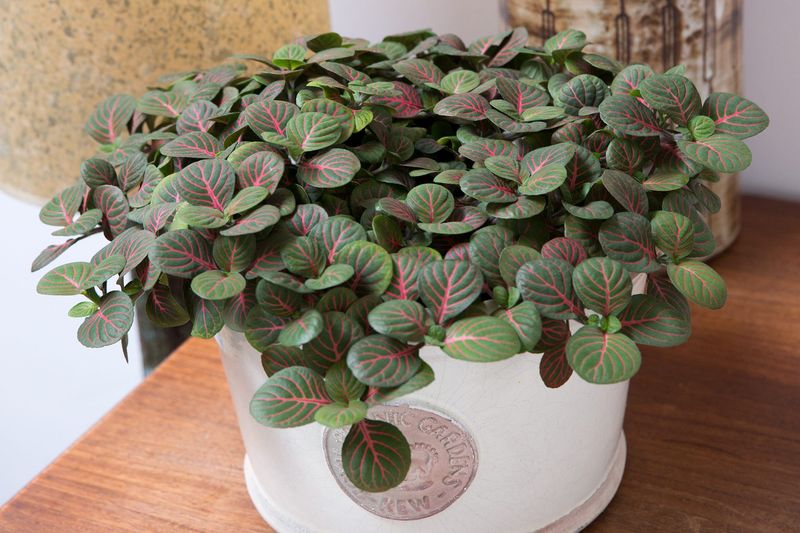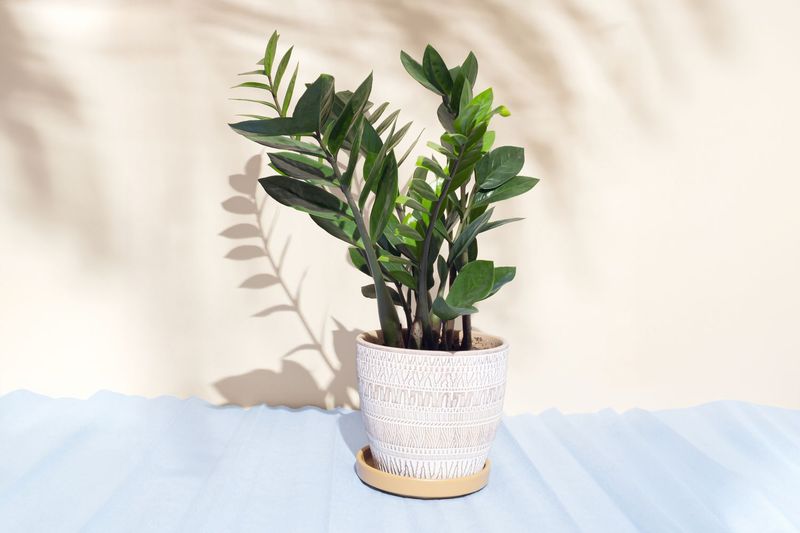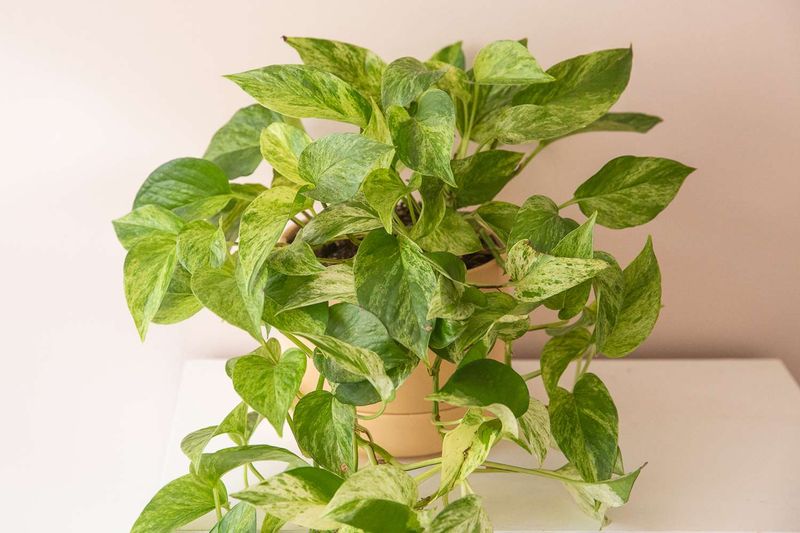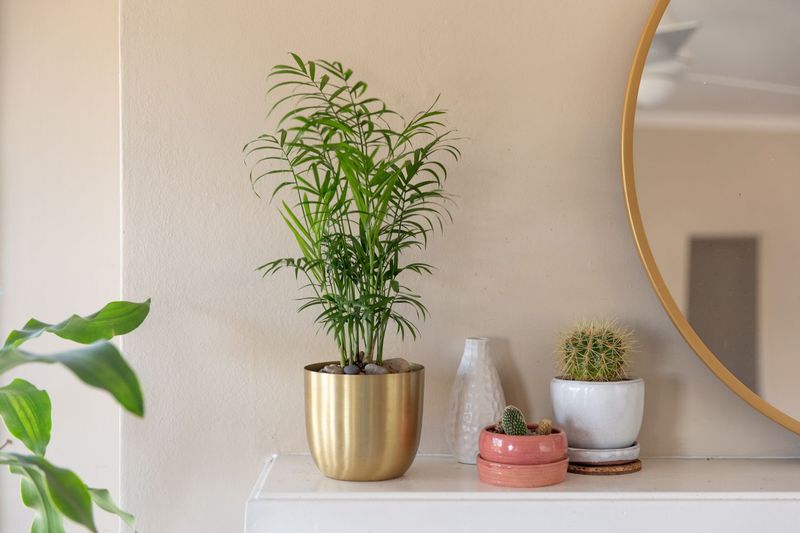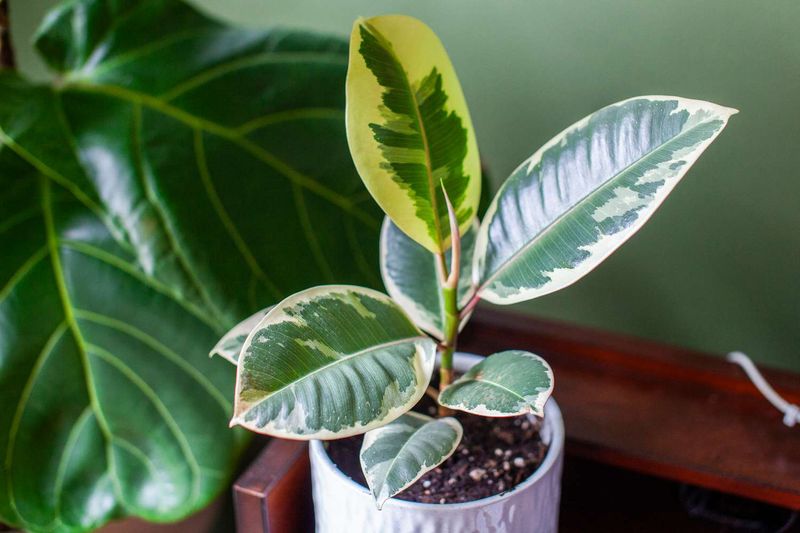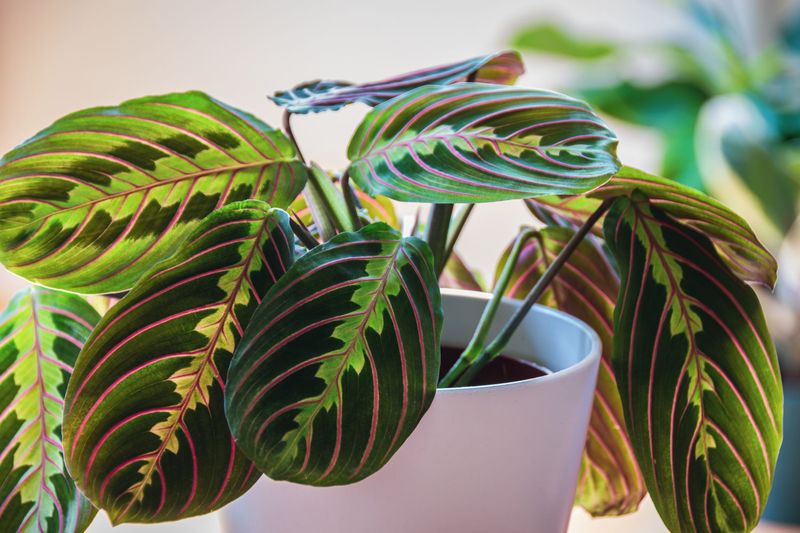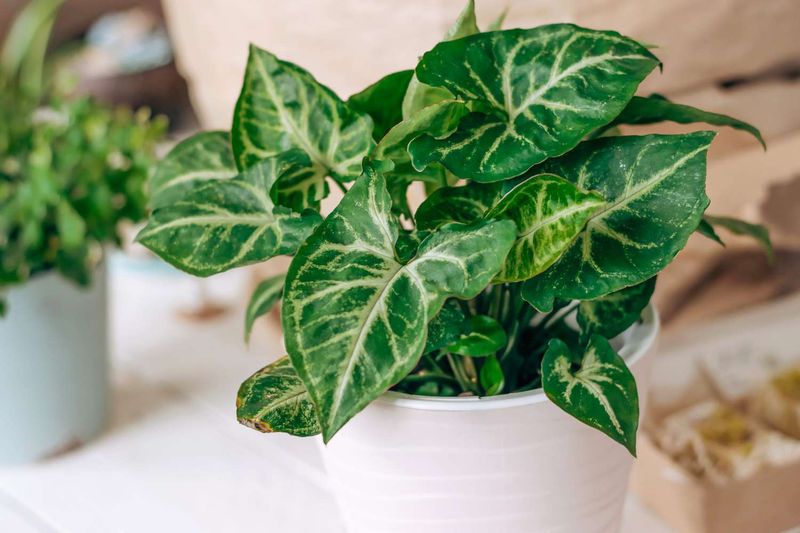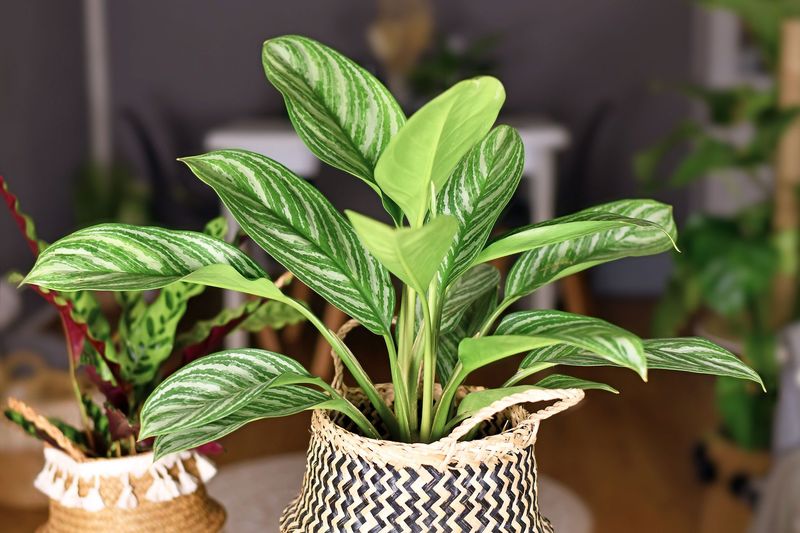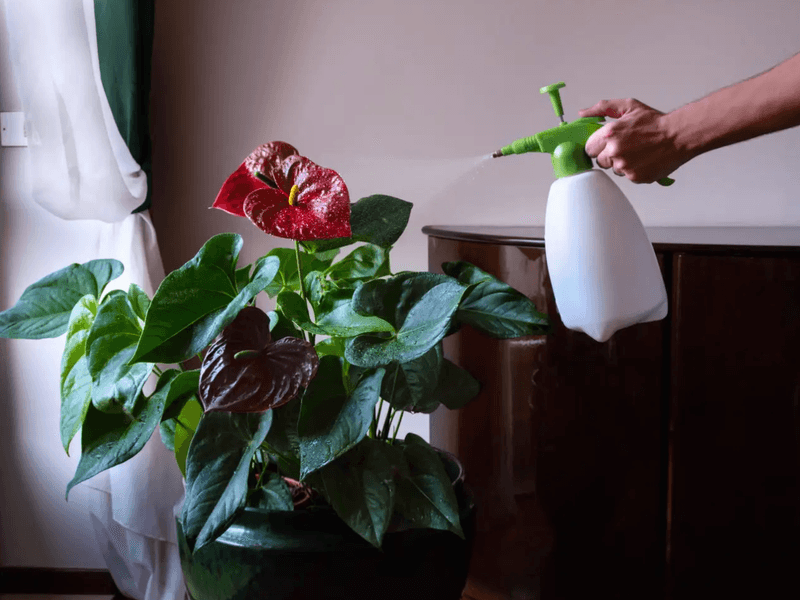Watering houseplants with tap water can be detrimental to their health due to the presence of chemicals like chlorine and minerals such as fluoride. These substances can accumulate in the soil, affecting the plant’s growth and vitality.
In this blog post, we’ll explore twenty houseplants that thrive better with distilled or rainwater, ensuring you keep your indoor garden lush and vibrant.
1. Spider Plant
Spider Plants are popular for their easy care and air-purifying qualities. However, they dislike the chemicals found in tap water.
Chlorine and fluoride can cause brown tips on their leaves, leading to unattractive foliage. For best results, use distilled water or rainwater.
This will keep your Spider Plant healthy and vibrant. With minimal effort, you can maintain its lush appearance and enjoy its natural beauty in any room.
2. Peace Lily
Peace Lilies are known for their beautiful white blooms and air-purifying abilities. Tap water can harm them due to high mineral content.
Use filtered or distilled water to prevent leaf browning and maintain their striking appearance.
This choice ensures your Peace Lily remains healthy and continues to thrive indoors, adding elegance to your space.
3. Calathea
Calatheas are admired for their stunning leaf patterns, but tap water can cause leaf curling and discoloration.
The minerals in tap water can disrupt their growth. Opt for distilled or rainwater to keep their foliage pristine.
By providing the right water, you ensure your Calathea remains a striking focal point in your home.
4. Orchid
Orchids are exquisite but sensitive to water quality. Tap water’s minerals can damage their delicate roots.
Use rainwater or distilled water to promote healthy blooms and vibrant foliage.
Proper watering ensures your Orchid flourishes and remains a captivating addition to your plant collection.
5. Bamboo Palm
Bamboo Palms thrive in humid conditions, but tap water can hinder their growth.
The presence of chlorine and fluoride can lead to leaf burn. Use filtered water for best results.
This ensures your Bamboo Palm remains lush, adding a tropical feel to your indoor environment.
6. Fiddle Leaf Fig
Fiddle Leaf Figs are trendy houseplants with dramatic leaves, yet tap water can cause leaf browning.
Minerals and salts can accumulate, affecting their health. Opt for filtered or distilled water.
This practice keeps your Fiddle Leaf Fig looking magnificent and thriving in your home.
7. Succulent Varieties
Succulents are generally hardy, but some varieties can suffer from tap water’s mineral buildup.
Use rainwater or distilled water to prevent leaf spots and discoloration.
This approach ensures your succulents stay vibrant and healthy, enhancing your indoor garden.
8. Boston Fern
Boston Ferns are known for their feathery fronds, but tap water can lead to leaf tip burn.
The chemicals in tap water may cause the plant to suffer. Use distilled water for hydration.
By doing so, you’ll keep your Boston Fern lush and thriving throughout the seasons.
9. African Violet
African Violets are cherished for their vibrant blooms but are sensitive to water quality.
Tap water’s minerals can cause leaf spotting. Use room-temperature distilled water for best results.
This ensures your African Violet remains healthy, offering continuous blooms.
10. Maidenhair Fern
Maidenhair Ferns are delicate and require specific care. Tap water can harm their foliage.
Chlorine and fluoride cause browning and drying. Use filtered water to maintain their freshness.
With proper care, your Maidenhair Fern will flourish and grace your space with its elegance.
11. Rattlesnake Plant
Rattlesnake Plants are distinctive for their wavy leaves but are sensitive to tap water.
The minerals can cause discoloration. Opt for distilled or rainwater.
Keeping the water pure will ensure your Rattlesnake Plant thrives, showcasing its unique beauty.
12. Fittonia
Fittonias, or nerve plants, boast vibrant leaf patterns but dislike tap water’s chemicals.
Chlorine and fluoride impact their health. Use distilled water for hydration.
Ensuring clean water helps your Fittonia maintain its vivid colors and thrive indoors.
13. ZZ Plant
ZZ Plants are tough and forgiving, yet tap water’s minerals can accumulate within their system.
Use rainwater or distilled water to prevent leaf yellowing and keep them thriving.
By choosing the right water, your ZZ Plant will remain a resilient and attractive feature.
14. Pothos
Pothos are popular for their trailing vines but can be affected by tap water.
High mineral content can lead to leaf browning. Use filtered or distilled water for best results.
This simple change keeps your Pothos lush and vibrant all year long.
15. Parlor Palm
Parlor Palms bring elegance to any space but are sensitive to tap water.
Chlorine can cause leaf tip browning. Filtered water helps maintain their lush appearance.
Providing the right water ensures your Parlor Palm remains a stunning centerpiece.
16. Rubber Plant
Rubber Plants are admired for their bold foliage but can suffer from tap water’s chemicals.
Chlorine and fluoride lead to leaf discoloration. Opt for distilled water.
This choice keeps your Rubber Plant healthy and its leaves shiny and vibrant.
17. Prayer Plant
Prayer Plants are unique for their leaf movements but sensitive to water quality.
Tap water can cause leaf curling. Use rainwater or distilled water for optimal health.
By doing so, you’ll keep your Prayer Plant a lively and intriguing part of your decor.
18. Arrowhead Plant
Arrowhead Plants are appreciated for their changing leaf shapes but dislike tap water.
The minerals can hinder their growth. Use filtered water to keep them lush.
This approach ensures your Arrowhead Plant remains a dynamic and attractive addition.
19. Chinese Evergreen
Chinese Evergreens are valued for their easy care and beauty, yet tap water can cause leaf spots.
Use distilled water to avoid this and keep them thriving.
With minimal effort, your Chinese Evergreen will remain a vibrant fixture in your home.
20. Anthurium
Anthuriums are striking with their waxy flowers but sensitive to tap water minerals.
Use rainwater or distilled water to maintain their vivid blooms.
This practice ensures your Anthurium stays healthy and continues to brighten your living space.
